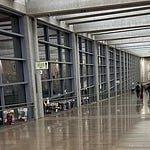The fast pace of the news cycle in the US — the tariffs and their impact on the economy around the world, fears (on the part of some) about the freedom of speech and the independence of academia, the deportations of an innocent man to Salvadorian prisons from which he will or will not be extricated, and more — make some of what is happening in Israel less than the high profile news it would once have been.
The big story in these parts, these days, is the very confusing saga of what’s known here as Qatargate. While in many respects, it’s “just another scandal in this administration,” it smells in a different sort of way, so it’s important to understand it.
Today we offer our readers a quick glance at the basics for those who have understandably had trouble figuring out what this is all about, and we’re posting an interview wtih Lt Col (Res) Dr. Udi Levy, former head of the Mossad Unit responsible for thwarting financial terror — which it appears is precisely what Qatar has been doing for years.
WHAT IS QATARGATE?
The “Qatargate” controversy centers on allegations that two close aides to Israeli Prime Minister Benjamin Netanyahu—Jonatan Urich and Eli Feldstein—accepted payments from Qatar to enhance the Gulf state’s image within Israel. These payments were reportedly funneled through an American lobbyist, with the purported aim of influencing Israeli media and public opinion during ceasefire negotiations between Israel and Hamas, in which Qatar played a mediating role. Additionally, the campaign allegedly sought to discredit Egypt, another key mediator in the negotiations.
The scandal has deeply unsettled the Israeli public, given Qatar’s perceived ties to Hamas and its lack of formal diplomatic relations with Israel. While Netanyahu is not officially a suspect in the investigation, he has been questioned by police and he, in turns, has poopoo’ed the entire matter and has dismissed the probe as a “political witch hunt.” The arrests of his aides have intensified scrutiny on his administration, especially as he concurrently faces an ongoing corruption trial and an investigation by the International Criminal Court for alleged war crimes.
Complicating matters further is Netanyahu’s recent attempt to dismiss Shin Bet Director Ronen Bar, whose agency is involved in the Qatargate investigation.
HOW IS NETANYAHU'S ATTEMPT TO DISMISS RONEN BAR, HEAD OF THE MOSSAD, RELATED TO QATARGATE?
Prime Minister Benjamin Netanyahu’s attempt to dismiss Ronen Bar, the head of Israel’s internal security agency, Shin Bet, is closely linked to the “Qatargate” scandal. This controversy involves allegations that Netanyahu’s close aides accepted payments from Qatar to promote the Gulf state’s interests within Israel.
Sequence of Events:
1. Qatargate Investigation: Under Bar’s leadership, Shin Bet initiated an investigation into claims that Netanyahu’s advisers received funds from Qatar to influence Israeli media and public opinion.
2. Attempted Dismissal of Ronen Bar: Amid this investigation, Netanyahu moved to dismiss Bar, citing a loss of trust following Shin Bet’s failure to prevent the October 7, 2023, Hamas attack. Critics argue that this dismissal was an attempt to obstruct the ongoing Qatargate probe.
3. Legal and Public Backlash: The dismissal led to public protests and legal challenges. Israel’s Supreme Court temporarily suspended Bar’s removal, and Attorney General Gali Baharav-Miara opposed the dismissal, highlighting potential conflicts of interest due to the active investigation involving Netanyahu’s aides.
In summary, Netanyahu’s attempt to dismiss Ronen Bar is widely perceived as an effort to interfere with Shin Bet’s investigation into the Qatargate scandal, thereby protecting his close associates and potentially himself from scrutiny.
WHY IS IT THAT AT A MOMENT LIKE THIS, WITH SECURITY SO CRITICAL, NETANYAHU HAS FAILED TO NOMINATE A REPLACEMENT FOR RONEN BAR, WHOM HE IS TRYING TO FIRE?
Prime Minister Benjamin Netanyahu’s attempt to replace Ronen Bar as head of Shin Bet, Israel’s domestic intelligence agency, encountered significant obstacles. On March 31, 2025, Netanyahu nominated former navy commander Eli Sharvit for the position. However, within a day, Netanyahu withdrew Sharvit’s nomination, stating he intended to consider other candidates. The brief nomination period did not include a formal appointment or swearing-in ceremony for Sharvit.
The withdrawal followed reports that Sharvit had participated in the 2023 protests against Netanyahu’s proposed judicial reforms, raising concerns about his alignment with the government’s stance.
This development occurred amid legal challenges and public protests regarding Netanyahu’s decision to dismiss Ronen Bar. The Israeli Supreme Court temporarily suspended Bar’s dismissal pending further review, adding complexity to the leadership transition at Shin Bet.
As a result, the position of Shin Bet chief remained in flux, with Bar’s dismissal on hold and no confirmed successor. Netanyahu’s administration faced increased scrutiny over these decisions, reflecting broader tensions within Israel’s political and security establishments.
WHY WAS THE EDITOR OF THE JERUSALEM POST ARRESTED AS PART OF THE QATARGATE INVESTIGATION?
Zvika Klein, the editor-in-chief of The Jerusalem Post, was arrested in connection with the “Qatargate” investigation due to suspicions that he participated in a scheme to promote Qatar’s interests in Israel in exchange for benefits. This investigation centers on allegations that close aides to Prime Minister Benjamin Netanyahu accepted payments from Qatar to enhance the Gulf state’s image within Israel.
Klein’s involvement came under scrutiny following his trip to Qatar in 2024, during which he conducted interviews with senior Qatari officials and subsequently published articles portraying Qatar positively. Israeli authorities suspect that this trip and the resulting coverage were part of a broader effort orchestrated by Qatari agents to influence Israeli media narratives. Attorney General Gali Baharav-Miara stated that Klein was initially summoned as a witness but became a suspect after his testimony indicated potential involvement in receiving benefits from Qatar in return for favorable coverage.
Klein has denied any wrongdoing, asserting that his journalistic activities were conducted transparently and without any improper influence. He expressed shock at his arrest, stating, “Not even in my worst nightmares could I have imagined this.”
Klein was released from house arrest on April 3, 2025, but the investigation remains ongoing.
HOW HAS ALL THIS IMPACTED NETANYAHU’S POLITICAL STANDING?
The “Qatargate” scandal has significantly affected Prime Minister Benjamin Netanyahu’s political standing, adding to his existing legal and political challenges. The mere idea that senior members of his administration were in the pocket of Qatar, which funds Hamas and thus made the October 7 attacks possible, simply smells very bad.
Impact on Netanyahu’s Political Standing:
1. Increased Scrutiny and Legal Challenges: Although Netanyahu is not officially a suspect in the Qatargate investigation, he has been questioned by police. This development adds to his ongoing corruption trial, intensifying public and legal scrutiny.
2. Public and Political Backlash: The scandal has led to public protests and criticism from opposition figures. Critics argue that Netanyahu’s attempt to dismiss Shin Bet Director Ronen Bar, whose agency is investigating the Qatargate affair, represents an effort to obstruct justice and undermines Israel’s legal and security institutions.
3. Strained International Relations: The alleged involvement of Netanyahu’s aides in promoting Qatari interests has raised concerns among Israel’s allies, potentially impacting diplomatic relations, particularly with countries like Egypt, which has been a key mediator in the Israel-Hamas conflict.
In summary, the Qatargate scandal has compounded Netanyahu’s legal woes, eroded public trust, and posed challenges to Israel’s diplomatic relations, thereby weakening his political position both domestically and internationally.
AND WHAT IF THERE WERE TO BE ELECTIONS?
As of early April 2025, Prime Minister Benjamin Netanyahu’s political standing in Israel has been notably impacted by recent events and public sentiment.
Current Polling Data:
• Public Trust: A Channel 12 poll conducted in late March 2025 indicates that 70% of Israelis do not trust the current government under Netanyahu’s leadership. Notably, among coalition voters, 36% expressed distrust in the government. (The quip around these parts is “Thank God for AIPAC — every Prime Minister needs to know that there is someone out there who will applaud him.” )
• Calls for Resignation: Surveys reveal that a significant portion of the Israeli populace believes Netanyahu should resign. For instance, a poll from the Israel Democracy Institute found that 72.5% of respondents think he should take responsibility for the events of October 7, 2023, and resign either immediately or after the Gaza war concludes.
Potential Electoral Outcomes:
• Impact of Naftali Bennett’s Candidacy: Recent polling suggests that if former Prime Minister Naftali Bennett were to re-enter politics with a new party, it could significantly alter the political landscape. A Channel 12 poll reported by The Times of Israel indicates that Bennett’s party could secure 23 seats, surpassing Likud’s 22 seats. This scenario would position the anti-Netanyahu bloc to potentially hold 66 seats in the 120-seat Knesset, compared to 49 for the current Netanyahu-led coalition.
These figures underscore a notable shift in public opinion, with a substantial portion of Israelis expressing dissatisfaction with Netanyahu’s leadership and openness to alternative leadership options.
Now, with that background, you can listen to the interview of Lt. Col. (Ret.) Dr. Udi Levy, who used to run the branch of the Mossad assigned to fight financial backing for terror.
The original audio and UnXceptable’s translation on its Instagra page is below. We have pasted it to the very top, as well, since some of our readers have trouble with Instagram links.
A quick reminder that Passover starts this coming weekend. For the week of Passover, out of respect for those observing both days of the holiday at the beginning and at the end, we will be on a reduced schedule.
















